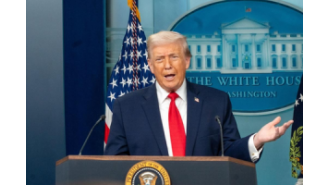India and Chinese Taipei have requested for a postponement of the WTO's decision on the dispute over import duties on information and communication technology products until July 26.
India and Chinese Taipei have requested WTO not to adopt any ruling on India's import duties on technology products until July 26, as they work towards resolving the matter.

Recently, a meeting was held in Geneva on April 26th between India, Chinese Taipei, and the WTO's dispute settlement body. During this meeting, both India and Chinese Taipei requested that the DSB refrain from adopting any ruling against India's import duties on certain information and technology products until July 26th. This is because both sides are currently working towards resolving the matter at hand. The request was agreed upon by the DSB, and this is not the first time such a request has been made. In fact, the DSB has previously agreed to three other requests from India and Chinese Taipei to delay the consideration of reports.
The rules of the WTO state that any ruling made by a dispute panel must be adopted by the DSB within 60 days of its release. However, member countries can mutually request for a delay in the adoption of the ruling. In this case, a dispute panel of the WTO had released a report on April 17th, 2023 stating that India's import duties on certain information and technology products were in violation of global trading norms. This was followed by a case filed by the EU, Japan, and Taiwan against these duties in the WTO.
Chinese Taipei had also filed a case against India in the WTO in May 2019, regarding the import duties imposed on certain electronic goods. These goods included telephones for cellular networks, machines for reception and transmission of voice and data, and parts of telephone sets. India argued that these ICT products were not covered under the WTO's Information Technology Products agreement, as India is only a part of ITA-1 which was signed in 1997.
Apart from resolving trade disputes, the WTO also formulates norms for global exports and imports. According to its rules, a member country can file a case in the WTO if they believe that a particular trade measure goes against its norms. The first step towards resolving a dispute is bilateral consultation, and if that fails, either side can approach the establishment of a dispute settlement panel. The panel's ruling can then be challenged at the WTO's appellate body.
However, it is worth noting that the appellate body is currently not functioning due to disagreements among member countries in appointing its members. As a result, several disputes are currently pending with this body. The US has been blocking the appointment of members, which has led to the stalemate. With this in mind, it is even more crucial for countries to engage in bilateral consultations and try to resolve disputes without involving the appellate body.
7 Views










